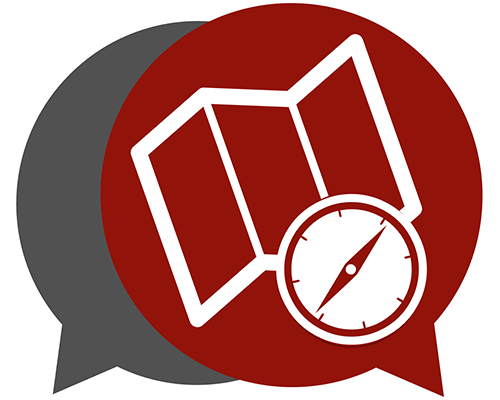3-Sources and Information Needs
1. What Sources to Use When

Sometimes students hate assignments that require sources to meet their research projects’ information needs. But if you didn’t use sources to meet those needs, you would have to make everything up yourself. Just think of the work! And then, would your audience believe you? So don’t lament that you need sources. They are a huge help, not an unnecessary bother, and you can learn to handle them.
A big way we can help is to let you know when to use which important categories of sources covered in Chapter 2 to meet your project’s information needs. And some of those needs are pretty choosey.
Along with sometimes collecting your own data, meeting information needs is how you complete your project. Here are those needs:
- To learn more background information about your topic and research question.
- To develop your research question(s).
- To describe the situation surrounding your research question for your audience and explain why it’s important.
- To report what others have said about your question, including any different answers to your research question.
- To answer your research question(s).
- To convince your audience that your answer is correct or, at least, the most reasonable answer.
The verbs in the list of information needs above tell you exactly how you’ll use sources to carry out your research and create your final product: to learn, develop, describe, report, answer, and convince. But you won’t be doing any of that alone.
Your sources will be giving you information to do all that. They’ll also give you direct quotes and information to summarize and paraphrase as you create your final product. In other words, your sources will support you every step of the way during your research project.
That’s true even when you find sources that disagree. Don’t ignore this—it happens often. Instead, address their differences within your report of what sources have said about your research question. That’s a good way to show your professor that you considered your research question from multiple perspectives. As you’ll see in Chapter 10, Writing Tips, showing different perspectives will actually strengthen your argument that your answer is correct or at least the most reasonable answer.
Tip:
For another way to think about the work your sources do, see Roles of Research Sources.
Needs and Final Products
Background information seldom appears directly in any final product. But meeting each of the other information needs will usually result in written sections of a research paper or essay.
For final products other than research papers and essays, you’ll have to meet the same needs and will use sources to meet them. But not all needs will necessarily be included in sections of your final product.
Example: Posters and Information Needs
On a poster about your own original research, you aren’t likely to have room to describe the situation surrounding your research question and why the question is important. That same lack of space may also mean you do not report what others have said about your research question. (Maybe you’ll just add footnotes with no further explanation.) But that doesn’t mean you didn’t meet those information needs and others as your carried out your research. Unlike a research paper, essay, or journal article, the poster format in which you reported it just had less space.
For instance, to justify doing the research to yourself and your professor, you probably started by meeting the information need to describe the situation around your research question and why it is important. Your instructor may have had you turn in that justification. And to do research based on what has already been found out, you will have studied what others have already reported about your research question. You may also have had to do that in order to make your answer to your research question more correct and believable. All that is without having room on your poster to report that you met those needs. But all your decisions about the information that is on your poster will have been informed by meeting those information needs.
Here’s a helpful ebook about developing a research poster in the sciences.
Activity: Sources and Information Needs
